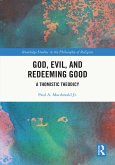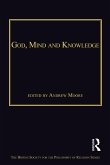Reading Augustine is a new line of books offering personal readings of St. Augustine of Hippo from leading philosophers and religious scholars. The aim of the series is to make clear Augustine's importance to contemporary thought and to present Augustine not only or primarily as a pre-eminent Christian thinker but as a philosophical, spiritual, literary and intellectual icon of the West.
Why did the ancients come to adopt monotheism and Christianity? On God, The Soul, Evil and the Rise of Christianity introduces possible answers to that question by looking closely at the development of the thought of Augustine of Hippo, whose complex spiritual trajectory included Gnosticism, academic skepticism, pagan Platonism, and orthodox Christianity. What was so compelling about Christianity and how did Augustine become convinced that his soul could enter into communion with a transcendent God?
The apparently sudden shift of ancient culture to monotheism and Christianity was momentous, defining the subsequent nature of Western religion and thought. John Peter Kenney shows us that Augustine offers an unusually clear vantage point to understand the essential ideas that drove that transition.
Why did the ancients come to adopt monotheism and Christianity? On God, The Soul, Evil and the Rise of Christianity introduces possible answers to that question by looking closely at the development of the thought of Augustine of Hippo, whose complex spiritual trajectory included Gnosticism, academic skepticism, pagan Platonism, and orthodox Christianity. What was so compelling about Christianity and how did Augustine become convinced that his soul could enter into communion with a transcendent God?
The apparently sudden shift of ancient culture to monotheism and Christianity was momentous, defining the subsequent nature of Western religion and thought. John Peter Kenney shows us that Augustine offers an unusually clear vantage point to understand the essential ideas that drove that transition.









